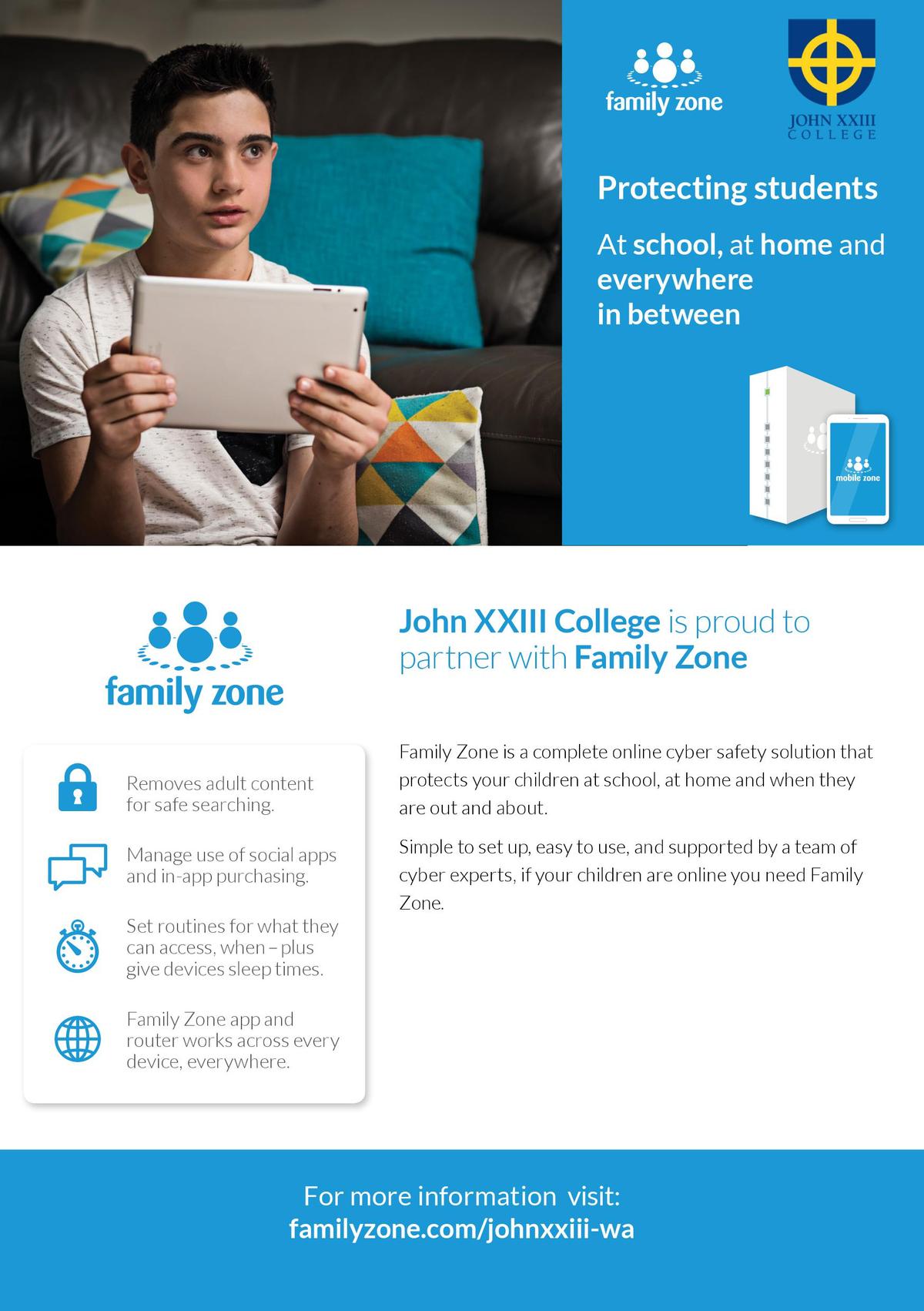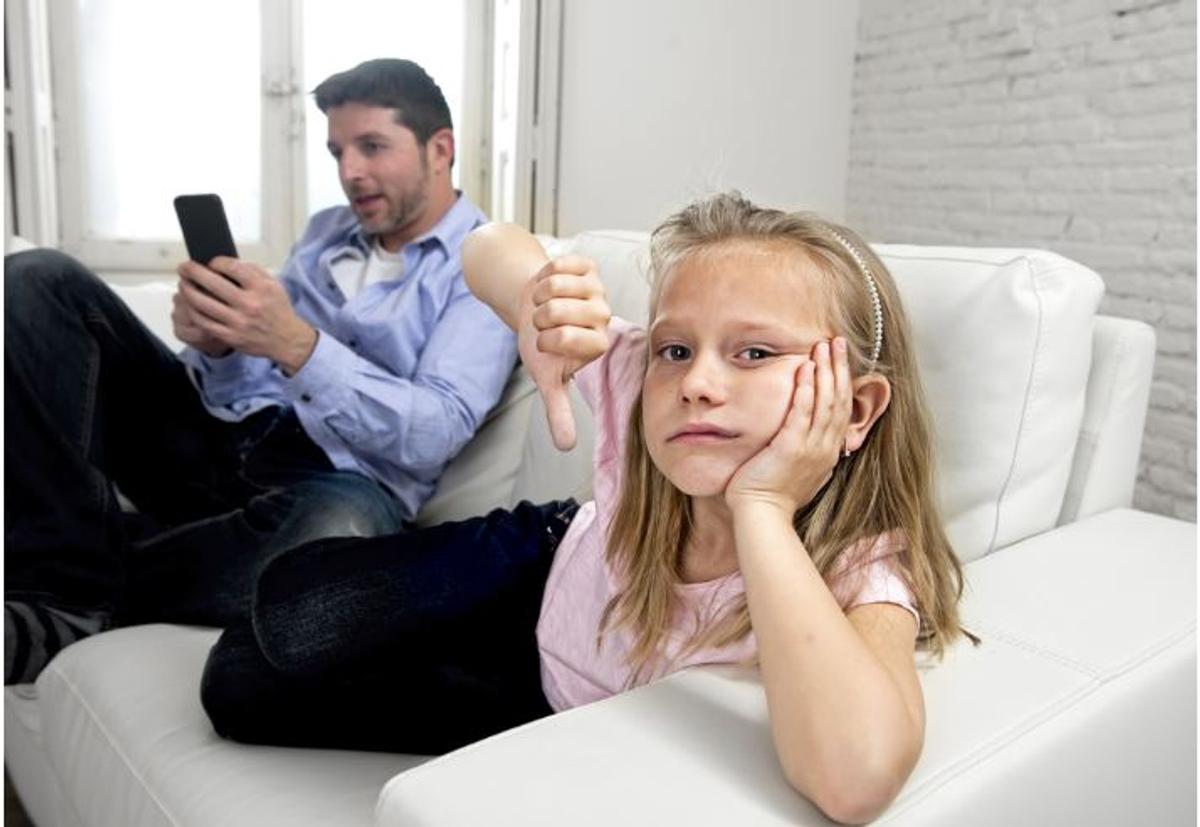Family Zone & Cyber Safety

Download Family Zone
Make use of the Family Zone Accounts which we are offering to John XXIII College families for free, as part of our College contract negotiations until 2020.
By setting up a private Family Zone account, you can apply age-appropriate parental controls on every device your child has access to, in any location. To find out more visit https://www.familyzone.com/johnxxiii-wa
Play with me, not with your phone!
“I hate my mum’s phone and I wish she never had one!”
Think your kids spend too much time stuck to a screen? They may feel exactly the same way about you.
Take 7-year-old Emil Rustige of Hamburg, Germany, who last year organised a successful public protest around the slogan “Play with ME, not with your cell phones.”
In Manchester, community leaders observed “unbelievable attempts by children to communicate with the adult they are with but who is oblivious to them” - and have been inspired to create a public health program aimed specifically at reducing parent-child technoference.
Ironically, the initiative features ‘nudge’ texts reminding parents that device-free communication is important.
Emil Rustige (R), age 7. His sign says “We are loud because you only look at your mobile phone.”
A global survey of over 6,000 families found over half of children reported their parents checked their devices too frequently - and a third said it made them feel “unimportant” as a result.
Clinical psychologist Catherine Steiner has studied the issue in depth, interviewing 1000 children, parents and teachers about the role screens play in their lives. When kids feel like they’re competing with screens for their parents’ attention, she notes, they use words like sad, angry, mad and frustrated.
Devices have become “the new sibling rivalry,” she found.
Journalist Arianna Huffington agrees. “This technology has become another member of the family, and one that we habitually turn to for multiple reasons including to relieve the inevitable stress brought on by the challenges of raising the other members of the family.”
Parent-shaming is not the answer, she insists. Nor is going cold-turkey.
“You can’t always say your child will come before your phone,” says Judith Myers-Walls, professor emerita at Purdue University. But we can ask: “How can I model for my child a positive way to use this?”



